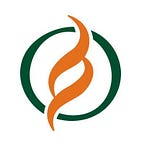Each day, Anasthasie wakes up with one thing in mind: today is another opportunity to save lives. At age 42, Anasthasie has served her community for 20 years as a midwife at the primary health center in Amborovy, a rural commune in northwestern Madagascar. She is well known in her community for her positivity and unmatched devotion.
Her daily life as a midwife is far from routine. She knows her job is vital, and every delivery unique. Her role is to provide mothers and babies with quality, safe, and reliable care during pregnancy and childbirth, which includes knowing what to do to resuscitate a newborn in the case of complications like birth asphyxia — the second leading cause of death among newborns in Madagascar.
For health workers in rural and low-resource settings like Anasthasie, passion and devotion alone are not sufficient to save lives. Capacity building and continuous education and skill-building are crucial to provide quality services to the population as clinical standards evolve.
The USAID-funded ACCESS program, led by Management Sciences for Health, supports the provision of quality health services by training health workers in 14 of Madagascar’s 23 regions in maternal and neonatal care.
Implemented in partnership with the American College of Nurse-Midwives and the American Academy of Pediatrics, these clinical capacity building programs provide ongoing training on vital skills, like newborn resuscitation. By equipping them with modern resuscitation techniques like suctioning, stimulation, and ventilation, the programs offer health workers like Anasthasie opportunities to expand their knowledge and refine their skills — and save more newborns’ lives.
Additionally, USAID ACCESS has worked with the Ministry of Public Health to renovate regional training offices throughout the country to create equipped skill labs, where health workers can practice resuscitation techniques and other procedures at their own pace and continuously refresh their skills by conducting practical drills or taking refresher training courses.
“We used to handle newborn resuscitation by holding the baby upside down by the foot, while rubbing his back. That awkward method worked sometimes. But the techniques we’ve learned from the training are far more efficient and better for the baby.” ~ Malagasy midwife Anasthasie
“As a certified midwife, I have strong school-based knowledge and acquired experience on newborn resuscitation. But medicine and healthcare are constantly evolving, and I’m extremely proud of these new skills that help me save lives.”
The learning and support continue outside the skill labs. After the initial training sessions, clinical mentors regularly visit Anasthasie on-site and provide follow-up training and supervision to help her deliver the best possible care to her patients.
Being a midwife is more than a job, it is a vocation.
“I am a midwife, so my role is to give life. I can proudly say that I am doing my job properly when I succeed in resuscitating a newborn. That’s one of the most moving experiences in this job.”
In Madagascar, an expectant mother’s likelihood to deliver her baby with the support of a skilled birth attendant is influenced by multiple factors, but trust in health workers and in the quality of care provided at health facilities are critical. This is particularly true in communities where many families live far distances from the nearest health center. Knowing they will be met with trained providers who will offer them quality care helps expectant mothers and families feel confident in seeking out services at health facilities, ultimately increasing their chances for a safe delivery.
“In the first six months after the training, I have been able to resuscitate six babies who were not breathing at birth. People know that, and I can definitely say that it helped increase the number of antenatal care and deliveries at the center.”
A well-trained cadre of health workers increases communities’ confidence and trust in the primary health care system. Although access to essential, quality health care remains a challenge in Madagascar, conditions are improving thanks to capacity building efforts like these — and the impacts are lifesaving. To date, the USAID ACCESS trained more than 1,700 health workers like Anasthasie on newborn resuscitation. Between 2021 and 2022, the successful newborn resuscitation rate in health centers rose from 74.5% to 80.6% across 11 ACCESS-supported regions. Increasing the number of health workers who have the clinical skills to manage complications during and after delivery ultimately contributes to the country’s progress towards achieving universal health coverage and helps ensure that people and communities receive optimal, people-centered care, wherever they live.
“Seeing the happiness of a mother holding her healthy baby for the first time is my greatest satisfaction. These trainings have changed my life, but they have also changed the lives of the people I have served!”
